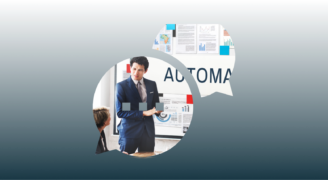Business owners often wonder if it is the right time to migrate to a cloud ERP system. Many a time, most of them are unable to make a choice and take the plunge. However, now it is time to ask if QuickBooks or Excel sheets are truly viable and futuristic for a rapidly expanding enterprise.
Maintaining the status quo may feel comfortable for now, but over time manual data entry, poor operational visibility, and inability to expand will negatively impact your business operations. So, now is the time to migrate to #1 cloud ERP NetSuite. The software has been witnessing steady growth in the number of businesses (40,000+) adopting it over the years.
Watch out for these warning signs before it’s too late to migrate
1. Does your current accounting software allow workflow customization?
At present, most businesses have industry-specific requirements in their business processes. If your accounting software is unable to align with the growing needs of your firm and is not able to produce custom workflows, it can impact your prospects. It is important to create custom workflows and reports that align with your unique business requirements.
2. Are you able to link your accounting software with other point solutions?
Sometimes it becomes necessary to integrate your accounting software with point solutions like inventory management tools or human resource management solutions for effective budget planning. But most types of accounting software lack these qualities.
NetSuite cloud ERP is a one-stop solution for all these requirements. It can run all your accounting needs, manage inventory and warehouse, while also assisting you in activities like CRM and sales. The software has various modules that cater to these requirements.
3. Is real-time reporting an option in your point solution?
Accounting systems nowadays offer reporting facilities in a predefined format. But they cannot be configured according to the business requirements. Even with third-party add-ons most accounting tools still struggle to make an impact.
Comparatively, NetSuite is highly customizable and offers real-time reporting that aligns with unique processes of your business. This results in data-driven decision-making capability and high ROI.
4. Is your business software ready to accommodate your growth drive?
Different business accounting software are limited by several factors, including data storage, import volume and custom field character limits. However, digital solutions like NetSuite overcome these limitations and pave the way for effective growth with scalable models that grow with your business.
Cloud ERP essentially means:
• No manual upgrades/version locks
• Ability to scale rapidly
• Advanced reporting
• Visibility across various departments

5. Is your accounting software capable of handling multiple currencies?
For a growing business, dealing with multiple currencies is part of the process. But when your accounting system cannot accommodate a different currency, it impacts your overall productivity. NetSuite OneWorld helps firms deal in multiple currencies and languages. It enables you to manage various transactions and assets in a single system.
In NetSuite, reporting is made easy across multiple geographies with regulatory standards of each country intact. This allows the company to have absolute visibility over their entire operations.
6. Does your standalone business softwares talk to each other?
While building your business, you may have first added accounting software, then a CRM, and inventory management tool, and so on. But once your business flourishes - it becomes hard to manage all this data from different sources in different formats. This is where the need for a complete ERP tool arises. NetSuite can manage and integrate with multiple tools and provide a unified report in a single interface.
Looking to implement NetSuite? Choose a NetSuite Alliance partner like Jobin & Jismi for world-class implementation.



